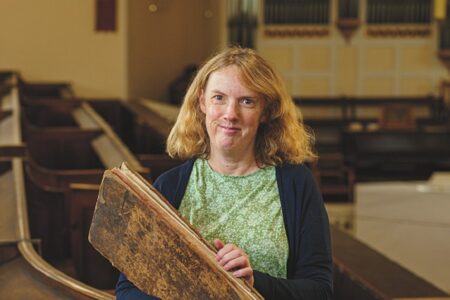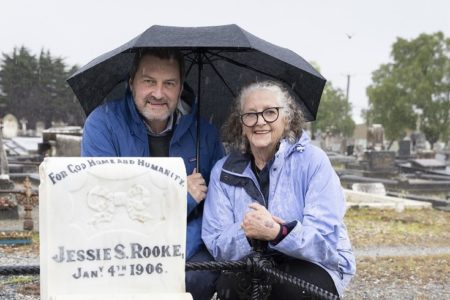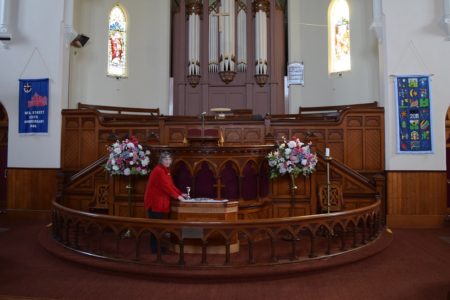Meredith Lake explains why, to move ahead, it often doesn’t hurt to have a look behind.
Learning about the past can open new ways of thinking about the present, something Dr Meredith Lake can personally attest to.
The award-winning historian and Radio National presenter grew up memorising Bible verses and praying at her dinner table in a devout Anglican household in Sydney’s outer suburbs.
She became hooked on the study of history in high school and has specialised in tracing out the story of Christianity in Australia, which at times she has found challenging.
“One thing it confronted me with is the horrific track record of Christians,” Meredith says.
“You see the complicity of European Christians in the colonial project and the inadequacy of good intentions to prevent disastrous actions.
“I’d had a fairly privileged and untraumatic experience of Christian community up to then. That probably took some of the silver coating off.
“It caused me to pause and think that if those people had blindspots that were so horrendous, I am sure I must have them now too in the church of our day and age.”
Meredith’s second book, The Bible in Australia: A Cultural History, won the 2018 Australian Christian Book of the Year.
“The book is about what happens if you put the Bible and what Australians have thought about it at the centre of our cultural narrative,” she says.
“Does it help us get past some of the clichés that we so often revert to? Get past the cliché of a godless nation from the convicts onwards, where any serious religious belief has to be insincere or inauthentic?
“It also challenges this idea that Australia is a Christian nation in any straightforward sense. Both of these myths, and I think they are myths, are totally inadequate to the interesting and messy story of human society here.”
Meredith says the story of the Bible in Australia has been complex.
“The Bible, when it was brought to Australia by European colonists at the end of the 18th Century, was already a really contested text,” she says.
“The scientific revolution had happened, the Enlightenment was in full swing, Europeans were already having their own arguments.
“The Bible was being re-read in ways that challenged old assumptions. What came with the colonists was an argument about what the Bible was and what was its authority and what it might mean.”
Meredith will explore why it is important to know about this dialogue as a speaker at this month’s Uniting Church National Historical Conference,
“The big question I’m thinking about is why religious history matters in secular society,” she says.
“I think mature robust pluralism requires a good historical memory.
“In our political debate, in our cultural reassessment, we are joining a conversation that has been going on for a long time.”
It’s been a busy time for Meredith, who 15 months ago delivered both her last book manuscript and her youngest child.
She has since become a presenter on the Radio National program Soul Search.
“I am really enjoying all the different kinds of people I get to speak to. Everyone from Indigenous activists to rock musicians to liturgical designers, I didn’t even know what that was before I started,” Meredith says.




